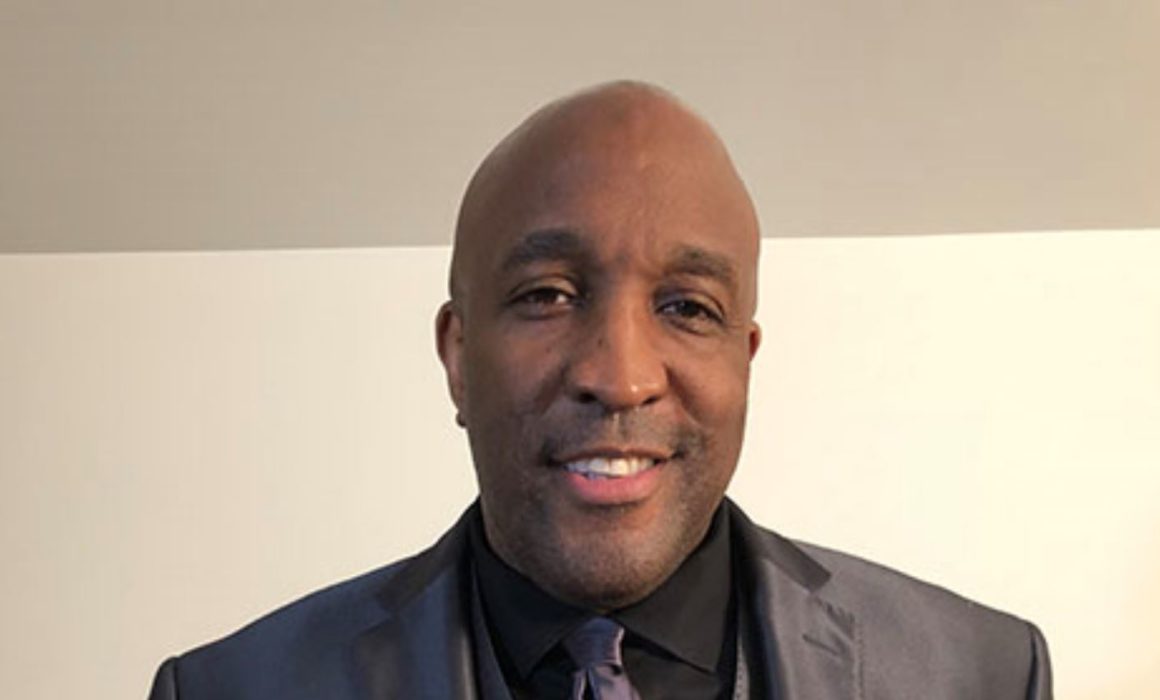
“We’ve worked on so much — all these things we have lobbied for are on the current administration’s agenda, and we are the ones who helped put them there.”
It’s no surprise Julius B. Thomas chose to be an educator and activist. The Rio Hondo College Faculty Association member comes from a long line of them.
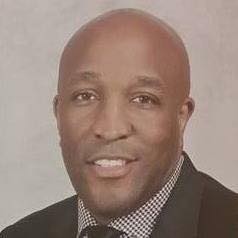
Julius B. Thomas
His mother, a first grade teacher for 35 years and member of the Chicago Teachers Union, made him understand the components of good teaching and a proper learning environment. “From grade school through high school, I helped her set up her classroom,” he says. “She created her own posters and decorated her classroom, because she told me that even when a kid is daydreaming, they are learning.”
The importance of education, Thomas says, was demonstrated by his grandmother, who received a two-year college degree in the 1920s — a rarity for an African American woman at the time. His brother also became an educator; one cousin is a minister at the Cook County jails, helping incarcerated men become better fathers; another works in restorative justice. His extended family includes nurses and attorneys, and like Thomas, all are active with their communities.
Thomas’ own work as an educator with CTA, NEA and the Community College Association (CCA) has won him two of NEA’s highest awards this year: the National Council for Higher Education (NCHE)/NEA Higher Educator of the Year Award, and the NCHE/NEA James Davenport Memorial Award. He will be honored at NEA’s Higher Education Conference on March 10.

Thomas with his fellow counselors at Rio Hondo College, May 2020.
The Higher Educator of the Year Award recognizes the postsecondary education professional who “continually provides outstanding student service, excellence in teaching and/or working with students, and state/local labor-based advocacy.” The Davenport Award, named after the first NCHE president, recognizes a member’s dedication to the higher education community and belief that all educators must work together as one family.
Family, in fact, describes Thomas’ decades-long connections to his professional endeavors. The Riverside resident has been a tenured professor at Rio Hondo College in Whittier since 2000, working as a counselor to thousands of students, many of whom have gone on to achieve their dreams (see sidebar below). He has served two terms each on the NEA Board of Directors, representing higher education, and on the CCA Board, where he was a director of the Ethnic, Racial and Minority Identity Committee. He is a CTA State Council delegate and a member or past member of multiple committees, including representation and the higher education advisory committee.
Thomas’ proudest achievement as an activist? “I’m proud of the legislation we’ve passed that affects students’ and members’ lives for the positive,” he says, recalling how he has lobbied, marched and rallied for various causes. In 2012, he was featured in a TV spot supporting Proposition 30, a successful ballot measure that helped prevent cuts to education.
“I talk about these issues in class. But when my students saw me on TV, and then when the measure passed, they understood what it meant. They were saying, ‘Thomas told us about that!’” he says, laughing.
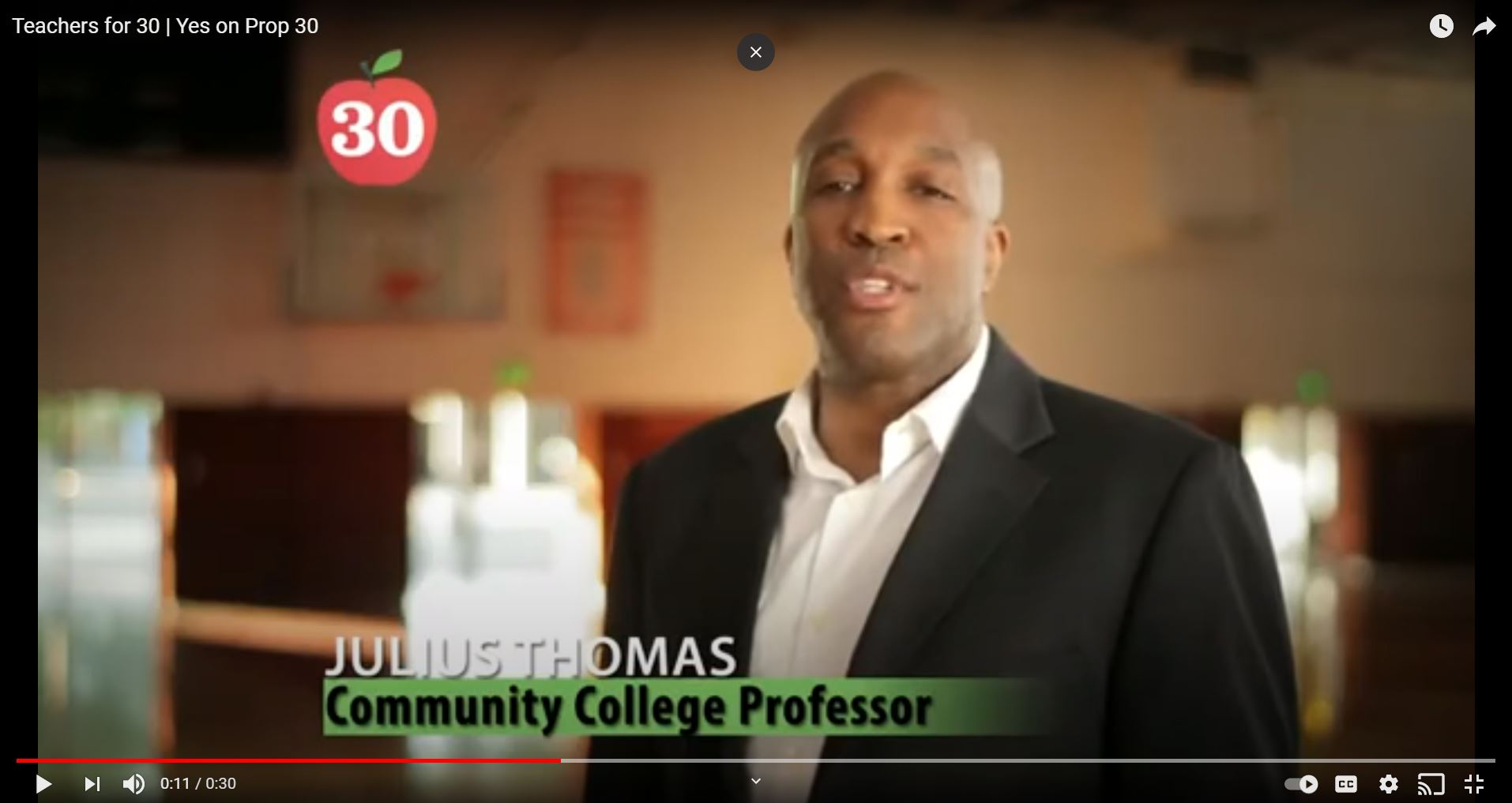
Thomas appearing in a 2012 TV spot supporting Prop. 30, which helped prevent cuts to education.
“We’ve worked on so much — the COVID relief package where schools wound up getting more money, the Social Security offset — all these things we have lobbied for are on the current administration’s agenda, and we are the ones who helped put them there.”
He appreciates the many opportunities he has had to build coalitions with community and social justice organizations working on Black, Latinx, Asian and Indigenous rights, among other issues.
And he counts his job as part of his activism. “Every day in community colleges we help eradicate the school-to-prison pipeline by allowing students who have been incarcerated to get their educational and vocational preparation,” says Thomas, noting community colleges’ flexibility in accepting anyone who wants to learn. “Kids get skills to make a good middle-class living to support themselves and their families. It spurs them and their children to go back to school and get an education, because they see how the system works.”
Now that his final term as an NEA director is ending, Thomas looks forward to what comes next. He is thinking of getting a doctorate in social justice, and possibly running for local political office.
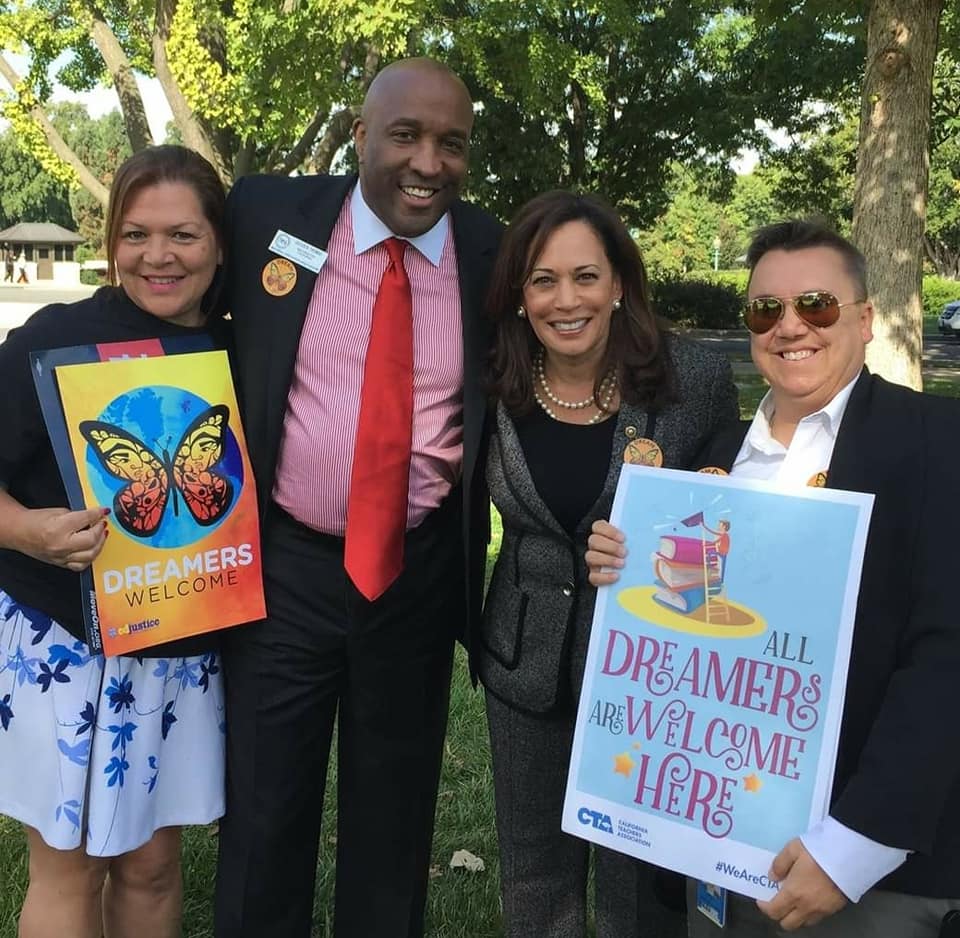
Thomas with Charmaine Hellmund (former California educator and NEA Board member), Vice President-elect Kamala Harris and Mel House (CTA/NEA coordinating director) in November 2020.
One thing is for sure: He will continue his work at Rio Hondo. “I was programmed to be an educator,” he laughs again, remembering his mother. “When I first started teaching and counseling, it was déjà vu — I knew exactly what to do, how to conduct myself. It had been ingrained in me.”
The Impact of a Counselor
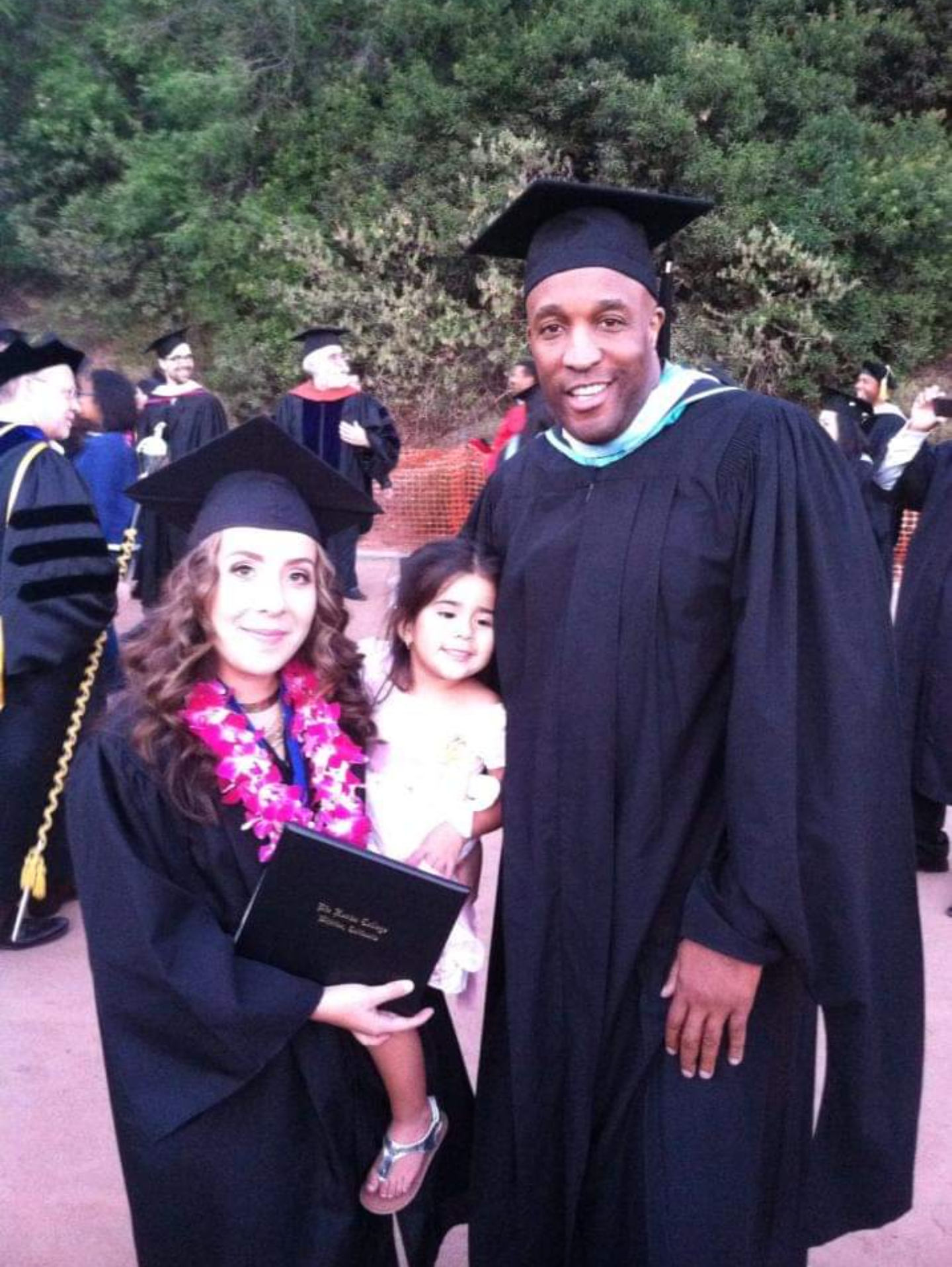
Thomas with Alex Soto and her child on Rio Hondo graduation day.
Alex Soto, a former student, sent an email to Julius Thomas in March, hoping he remembered her. It reads in part:
“When I enrolled at Rio Hondo I was a teen mom still in high school, taking your counseling class. I was excited … but also afraid and lost. …You made me feel confident and helped me believe in myself when there was so much uncertainty in my life.
“It was then that I knew what I wanted to do. I wanted to have that same impact on other students’ lives and help them believe that they are in control of their future. Sometimes we just need someone to believe in us and I want to be that for everyone.
“I just graduated and my credential was issued February 5th. … I wanted to thank you for being the source of inspiration I needed to find my purpose.”